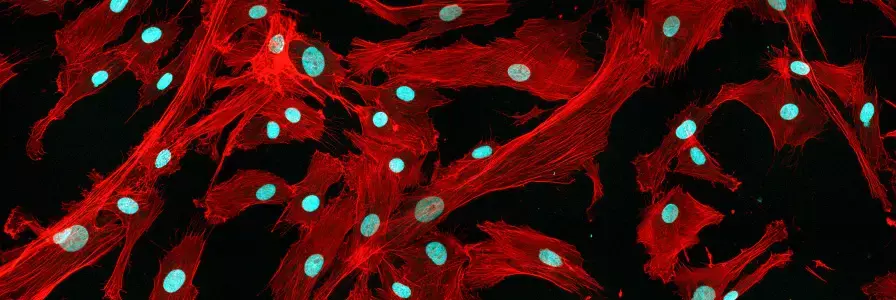- Home
- Medical news & Guidelines
- Anesthesiology
- Cardiology and CTVS
- Critical Care
- Dentistry
- Dermatology
- Diabetes and Endocrinology
- ENT
- Gastroenterology
- Medicine
- Nephrology
- Neurology
- Obstretics-Gynaecology
- Oncology
- Ophthalmology
- Orthopaedics
- Pediatrics-Neonatology
- Psychiatry
- Pulmonology
- Radiology
- Surgery
- Urology
- Laboratory Medicine
- Diet
- Nursing
- Paramedical
- Physiotherapy
- Health news
- Fact Check
- Bone Health Fact Check
- Brain Health Fact Check
- Cancer Related Fact Check
- Child Care Fact Check
- Dental and oral health fact check
- Diabetes and metabolic health fact check
- Diet and Nutrition Fact Check
- Eye and ENT Care Fact Check
- Fitness fact check
- Gut health fact check
- Heart health fact check
- Kidney health fact check
- Medical education fact check
- Men's health fact check
- Respiratory fact check
- Skin and hair care fact check
- Vaccine and Immunization fact check
- Women's health fact check
- AYUSH
- State News
- Andaman and Nicobar Islands
- Andhra Pradesh
- Arunachal Pradesh
- Assam
- Bihar
- Chandigarh
- Chattisgarh
- Dadra and Nagar Haveli
- Daman and Diu
- Delhi
- Goa
- Gujarat
- Haryana
- Himachal Pradesh
- Jammu & Kashmir
- Jharkhand
- Karnataka
- Kerala
- Ladakh
- Lakshadweep
- Madhya Pradesh
- Maharashtra
- Manipur
- Meghalaya
- Mizoram
- Nagaland
- Odisha
- Puducherry
- Punjab
- Rajasthan
- Sikkim
- Tamil Nadu
- Telangana
- Tripura
- Uttar Pradesh
- Uttrakhand
- West Bengal
- Medical Education
- Industry
Human umbilical cord-blood-derived mesenchymal stem cell can improve the clinical outcome after high tibial osteotomy: study

High tibial osteotomy (HTO) is a well-established surgery for patients with medial osteoarthritis (OA) with varus alignment. Furthermore, a combined cartilage regeneration procedure such as microfracture (MFx) has better survival rate in the long-term. Failed cartilage regeneration is closely related to the early failure of HTO and the need for total replacement arthroplasty.
There is limited study about the human umbilical cord-blood derived mesenchymal stem cell (hUCB-MSC) cartilage regeneration procedures combined with high tibial osteotomy (HTO). Dong Won Suh et al compared the clinical and radiological results of hUCB-MSC cartilage regeneration procedures combined with HTO to those of microfracture with HTO.
The article has been published in “The Knee” journal.
HTO patients with International Cartilage Regeneration and Joint Preservation Society (ICRS) grade IV cartilage defects over 200 mm2 on medial femoral condyle (MFC) were enrolled. For comparison, all participants were divided into two groups: those who had undergone hUCB-MSC induced cartilage regeneration procedure (group MSC) and those with microfractures only (group C, controls).
Arthroscopic examination was performed, including synovectomy, debridement, partial meniscectomy, and/or meniscal repair. For MFC cartilage defects, radical debridement for degenerated or flap fragment of the cartilage was performed to make healthy rim and expose subchondral bone. Then, an anteromedial portal was extended about 2 cm. Using a 4 mm-diameter reamer, multiple 4 mm-deep holes were made in subchondral bone in cartilage defects. After saline drainage, off-the-shelf hUCB-MSC product, Cartistem (MEDIPOST, Seongnam, South Korea), was applied. This product consists of 1.5 mL hUCB-MSCs (7.5 *106 cells/vial) and 4% hyaluronic acid hydrogel, After arthroscopic examination and hUCB-MSC implantation, medial opening-wedge HTO was performed conventionally using an anatomical locking plate with metal wedge
Postoperative rehabilitation protocol, early weight-bearing, was the same in both groups. Clinically, Hospital for Special Surgery (HSS), International Knee Documentation Committee (IKDC), and Lysholm scores were evaluated post-operatively at 18 months. Radiologically, mechanical axis (MA) and joint space width (JSW) were evaluated.
Key findings of the study were:
• A total of 100 knees were enrolled (43 in group MSC, 57 in group C).
• Intra-operatively, mean cartilage defects were 442 ± 210 mm2 in the MSC group and 401 ± 162 mm2 in group C, and there was no significant difference between the two groups.
• Mean sizes of the wedge were 10.0 ± 2.0 mm and 10.3 ± 1.9 mm in the MSC group and group C, respectively, and there was also no significant difference between the two groups.
• The IKDC score in group MSC (69) was better than that in group C (62; P < 0.05).
• The JSW increment in the MSC group (0.6 mm) was more than that in group C (0.1 mm; P < 0.05).
• No patient developed nonunion, correction loss, or arthroplasty conversion.
The authors concluded that – “hUCB-MSCs can improve clinical outcome and JSW better than microfracture only in HTO patients. However, further investigation is warranted for utilizing hUCB-MSC in HTO.”
Further reading:
Human umbilical cord-blood-derived mesenchymal stem cell can improve the clinical outcome and Joint space width after high tibial osteotomy
Dong Won Suh, Seung Beom Han et al
The Knee 33 (2021) 31–37
https://doi.org/10.1016/j.knee.2021.08.028
MBBS, Dip. Ortho, DNB ortho, MNAMS
Dr Supreeth D R (MBBS, Dip. Ortho, DNB ortho, MNAMS) is a practicing orthopedician with interest in medical research and publishing articles. He completed MBBS from mysore medical college, dip ortho from Trivandrum medical college and sec. DNB from Manipal Hospital, Bengaluru. He has expirence of 7years in the field of orthopedics. He has presented scientific papers & posters in various state, national and international conferences. His interest in writing articles lead the way to join medical dialogues. He can be contacted at editorial@medicaldialogues.in.
Dr Kamal Kant Kohli-MBBS, DTCD- a chest specialist with more than 30 years of practice and a flair for writing clinical articles, Dr Kamal Kant Kohli joined Medical Dialogues as a Chief Editor of Medical News. Besides writing articles, as an editor, he proofreads and verifies all the medical content published on Medical Dialogues including those coming from journals, studies,medical conferences,guidelines etc. Email: drkohli@medicaldialogues.in. Contact no. 011-43720751


